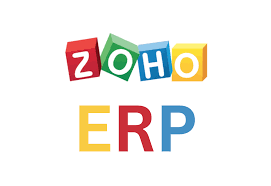
Best Cloud ERP Systems for Small & Medium Manufacturers Introduction
Best Cloud ERP Systems for Small & Medium Manufacturers
Introduction

Enterprise Resource Planning (ERP) systems play a pivotal role in the efficient management and seamless integration of diverse business processes such as inventory management, production planning, sales tracking, and financial operations. Adopting a cloud-based ERP system holds significant potential for ERP system for small manufacturers businesses, offering substantial advantages such as heightened operational efficiency, cost reduction, and enhanced decision-making capabilities. In this article, we delve into an in-depth analysis of the top cloud-based ERP systems tailored for small manufacturers, shedding light on their specific features and benefits and providing valuable insights into the selection process to help align the system with your business needs.
What is a Cloud ERP System?
Cloud ERP for small manufacturers is a modern software solution designed to streamline and integrate essential business processes into a single system. It operates on a cloud-based platform, eliminating the need for extensive on-premises hardware and IT infrastructure. By harnessing the power of the Internet, cloud ERP systems provide enhanced flexibility and scalability, allowing small manufacturers to adapt and grow without being limited by traditional hardware constraints.
Critical Benefits of Cloud-Based ERP for Small Manufacturers
Cloud-based ERP systems offer numerous benefits that can significantly enhance the operational efficiency and competitiveness of small manufacturing businesses:
Cost Savings
By leveraging cloud-based services, businesses can avoid the upfront costs of purchasing and maintaining physical hardware. The pay-as-you-go cloud computing model also allows for greater cost control and efficiency. The subscription-based pricing model ensures that companies only pay for the services they use, which can be adjusted as the business grows or scales down. This model is particularly beneficial for an ERP system for small manufacturers businesses, as it ensures cost-effectiveness.
Scalability
Cloud infrastructure enables businesses to adjust their computing resources to accommodate fluctuations in demand seamlessly. This scalability is particularly valuable for companies experiencing growth, as they can quickly expand their operations without overhauling their IT setup. This flexibility allows small manufacturers to manage peak production periods without incurring unnecessary costs during slower periods. For industries like automotive or aerospace, where demand can be unpredictable, this scalability is crucial.
Accessibility
Cloud-based systems allow users to access data and applications from any location with an internet connection. This fosters remote work opportunities and enhances collaboration among geographically dispersed teams. Employees can access real-time data and collaborate on projects regardless of location, improving productivity and efficiency. For NetSuite for medical device manufacturers or companies in smart manufacturing, this enhanced accessibility supports global operations and facilitates innovation.
Enhanced Security
Reputable cloud ERP providers implement robust security measures to protect sensitive business data. These measures include encryption, regular security audits, and strict access controls. Cloud providers typically have more resources to invest in advanced security technologies and practices than individual businesses, ensuring more data protection. For industries such as aerospace and automotive, where data security is paramount, this level of protection is essential.
Automatic Updates
The provider updates Cloud ERP systems automatically, ensuring that businesses always have access to the latest features and security patches. This reduces the burden on internal IT teams, ensures the system remains current, and effectively supports business operations. For companies using ERP software for aerospace suppliers or involved in driving digital transformation, staying up-to-date with the latest advancements can provide a competitive edge.
Top Cloud ERP Systems for Small Manufacturers

NetSuite ERP
Key Features
- Comprehensive financial management
- Advanced inventory and order management
- Integrated CRM and e-commerce capabilities
Pros
- Highly customizable
- Scalable for growing businesses
- Strong customer support
Cons
- Higher cost compared to some other options
- Complex implementation process
Pricing
- Starts at $999 per month plus $99 per user per month

QuickBooks Online
Key Features
- Easy-to-use accounting features
- Inventory tracking
- Payroll management
Pros
- User-friendly interface
- Affordable pricing
- Strong integration with other QuickBooks products
Cons
- Limited manufacturing-specific features
- Less scalable for larger businesses
Pricing
- Starts at $25 per month

Sage Intacct
Key Features
- Robust financial management
- Project accounting
- Real-time reporting and dashboards
Pros
- Strong focus on financial management
- Excellent reporting capabilities
- Scalable for growing businesses
Cons
- Higher cost
- Limited manufacturing-specific features
Pricing
- Custom pricing based on business needs

Zoho ERP
Key Features
- Integrated suite of business applications
- Inventory and order management
- CRM and project management
Pros
- Affordable pricing
- User-friendly interface
- Strong integration with other Zoho products
Cons
- Limited advanced features
- It can be complex to configure initially
Pricing
- Starts at $30 per month
How to Choose the Right Cloud ERP System for Your Manufacturing Business
When choosing the most suitable Enterprise Resource Planning (ERP) system for a small manufacturing business, it’s crucial to assess the following factors carefully:
- Business Needs
It’s important to thoroughly identify and understand the specific requirements of your manufacturing processes. Consider inventory management, production scheduling, quality control, and supply chain management. Understanding these needs will help you select an ERP system that offers the necessary functionalities to support your operations.
- Customization
Look for an ERP system that can be easily tailored to meet your business’s unique needs. Customization capabilities are essential for adapting the ERP to your workflows and processes. A customizable ERP system can be adjusted to align with your business model, ensuring that it supports your operations effectively.
- Scalability
Select an ERP system that can accommodate your business’s growth. It should be capable of scaling up to handle increased data, users, and transactions as your company expands. A scalable ERP system will grow with your business, preventing the need for frequent system replacements and minimizing disruptions.
- Integration
Ensure that the ERP system is compatible with your existing software and systems. Seamless integration is critical for efficient data flow across different facets of your business, such as accounting, customer relationship management, and e-commerce platforms. An integrated ERP system will eliminate data silos, improve communication between departments, and enhance overall operational efficiency.
- Cost
Evaluate the upfront investment and ongoing costs associated with the ERP system. Consider the initial implementation costs and factors such as maintenance, upgrades, training, and support. It is essential to choose a solution that aligns with your budget while providing the necessary functionality and support for your business operations.
Implementation and Integration
When implementing a cloud ERP system, it’s essential to approach the process methodically. The following steps are crucial for a successful implementation:
- Needs Assessment
Begin by comprehensively evaluating your existing processes and defining your requirements for the new ERP system. This involves understanding the pain points of the current system and identifying the critical functionalities needed to improve overall efficiency.
- Vendor Selection
Carefully research and select a vendor that offers a cloud ERP solution and aligns with your organization’s unique business needs and long-term goals. Consider scalability, support, industry-specific expertise, and integration capabilities.
- Project Planning
Create a detailed implementation plan that outlines the entire process, including milestones, timelines, resource allocation, and budgeting. Involve key stakeholders and department heads in this phase to ensure the plan aligns with the organization’s strategic objectives.
- Training
Invest in comprehensive training programs for your staff to ensure they are proficient in using the new ERP system. This could involve initial training sessions and ongoing support to facilitate a smooth transition and optimal utilization of the system’s features.
- Testing
Conduct rigorous testing of the new ERP system before going live to identify and address potential issues. This should include comprehensive testing of all modules and functionalities to ensure the system operates seamlessly and meets the organization’s specific requirements.
These detailed steps can increase the likelihood of a successful cloud ERP implementation within your organization. Common implementation challenges include resistance to change, data migration issues, and system integration complexities. Overcome these challenges by engaging stakeholders early, ensuring comprehensive training, and working closely with your vendor.
Future Trends in Cloud ERP for Small Manufacturing Businesses
Emerging trends in ERP for small manufacturing companies include:
AI and Machine Learning
AI and machine learning are enhancing predictive analytics, automating routine tasks, and improving decision-making. These technologies can analyze large volumes of data to identify patterns and trends, providing valuable insights to help businesses optimize their operations and make more informed decisions.
IoT Integration
Integrating IoT devices and sensors with ERP systems provides real-time data and insights. This connectivity allows manufacturers to monitor equipment performance, track inventory levels, and manage supply chains more effectively. IoT integration can also help with predictive maintenance, reduce downtime, and improve efficiency.
Blockchain
Blockchain technology is increasing transparency and security in supply chain management. By providing a decentralized and immutable ledger, blockchain can help manufacturers track the movement of goods, verify the authenticity of products, and reduce the risk of fraud. This technology can enhance trust and collaboration among supply chain partners.
Enhanced User Interfaces
ERP systems’ user interfaces are becoming more intuitive and user-friendly. Modern ERP systems are designed to provide a seamless user experience, making it easier for employees to navigate the system and access the information they need. Enhanced user interfaces can improve user adoption and increase the overall effectiveness of the ERP system.
Conclusion
Choosing the right cloud ERP system is crucial for small manufacturing businesses aiming to improve efficiency and reduce costs. Considering factors such as customization, scalability, and integration, you can find the best ERP for a small manufacturing company that fits your needs. Staying abreast of emerging trends will also help ensure your system remains relevant and practical. Investing in a suitable cloud ERP system can provide significant benefits, including streamlined operations, enhanced decision-making, and improved competitiveness.
Frequently Asked Questions
What is the main difference between cloud ERP and on-premises ERP?
Cloud ERP is hosted on the vendor’s servers and accessed via the Internet, while on-premises ERP is installed locally on the company’s servers.
How much does a cloud ERP system typically cost for a small & medium manufacturing business?
Costs vary widely but can range from $25 to $999 per month, depending on the system and number of users.
Can cloud ERP systems be customized to fit the specific needs of my business?
Many cloud ERP systems offer extensive customization options to meet specific business requirements.
How long does it take to implement a cloud ERP system?
Implementation time can vary from a few weeks to several months, depending on the system’s complexity and the business’s size.
Reputable cloud ERP providers implement robust security measures, including encryption, access controls, and regular security audits.
Categories
- 1w
- 888starz bd
- anchorage escort service
- bbrbet colombia
- book of ra it
- casino
- casino en ligne fr
- casino onlina ca
- Food and Beverage Industry
- melhor cassinos online
- mostbet GR
- mostbet norway
- NetSuite for Manufacturing Business
- online casino au
- ricky casino australia
- Smart Manufacturing
- Tech Tips for Business Owners
